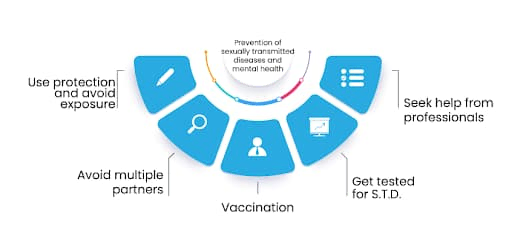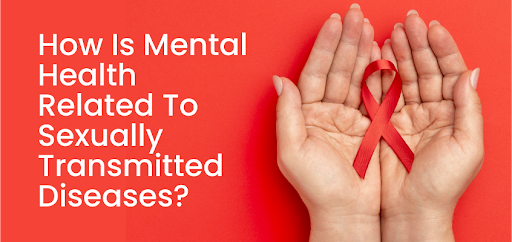Introduction
A sexual relationship between partners is fundamental for the continuation of a lineage and positively associated with the improved mental health of individuals. Being close to your partner, both emotionally and physically, can release different chemicals in the brain that reduce stress levels. But what if a sexual relationship turns into a nightmare? Sexual intercourse can transmit many infections and diseases amongst sexually active people. The condition can take a toll on an individual’s mental health and affect life negatively.
What is a sexually transmitted disease?
Sexually Transmitted Diseases (S.T.D.s) are diseases transferred via sexual contact from an infected to a healthy adult. This disease spreads through oral, vaginal, or anal sexual intercourse. Around 6% of the adult population is infected with S.T.D.s every year in India. Men and women who are sexually active can quickly contract the diseases of their infected partner. Sexually transmitted infections initially start as infections and can be asymptomatic. Therefore, it is difficult to self-diagnose the condition. Certain S.T.D.s can also be passed on to the unborn child in the womb and cause congenital disabilities. Some S.T.D.s are incurable; a medication can, however, mitigate the symptoms. S.T.D.s can range from specific pelvic inflammation to cancer. Without immediate medical treatment, the disease will cause progressive disability.
Prevention of sexually transmitted diseases and mental health
Sexually active people must opt for methods to reduce or prevent their risk of getting infected with S.T.D.s. Prevention of sexually transmitted infections and mental illness is possible with good decisions concerning sexual intercourse.

- Use protection and avoid exposure.
- Avoid multiple partners
- Vaccination
- Get tested for S.T.D.s.
- Seek help from professionals
- Use protection and avoid exposure.
Using latex condoms can protect you against S.T.D.s that pass through genital fluids, such as H.I.V., chlamydia, gonorrhoea, and trichomoniasis. However, since condoms do not cover the infected area completely, they may not protect you from S.T.D.s that transfer through skin contacts, such as syphilis, herpes, and HPV.
Let’s describe the points
- Avoid multiple partners
Engaging in mutual monogamy limits the chances of getting infected with S.T.D.s. Though it is still risky, getting tested for S.T.D.s before engaging in a sexual relationship is recommended.
- Vaccination
Vaccines are available for HPV, Hepatitis A, and B. However, the risk of infections, such as H.I.V., herpes, syphilis, etc., is still high.
- Get tested for S.T.D.s.
Sexually active individuals must visit their doctors regularly and get tested for sexually transmitted infections and diseases. Numerous laboratories and multi-speciality hospitals have S.T.D. Testing centres to get tested.
- Seek help from professionals
You can talk to a medical expert and clear all your doubts about S.T.D.s. They will also provide relevant information about safe-sex practices, S.T.D. Testing and medications. Suffering from a sexually transmitted disease often leads to anxiety, fear, helplessness, and other mental health problems. Talking to a therapist or counsellor will help you think clearly and manage your thoughts and emotions around infections and diseases.
Conclusion
Sexually transmitted diseases and mental health issues are closely associated with one another. Instead of feeling shame, guilt, and anger, timely diagnosis and treatment can help you cure the infection and disease. It is vital to abstain from sexual activities if you are infected. With a positive mindset and counselling, it is possible to overcome the negative feelings linked to S.T.D.s.
References:
- https://medlineplus.gov/sexuallytransmitteddiseases.html
- https://www.healthline.com/health/sexually-transmitted-diseases
- https://www.cdc.gov/std/general/default.htm
- https://www.healthline.com/health/healthy-sex-health-benefits
- https://journals.lww.com/md-journal/Fulltext/2018/10260/Risk_of_sexually_transmitted_infections_following.3.aspx
- https://publichealth.tulane.edu/blog/sti-vs-std/
- https://www.simplymedsonline.co.uk/blog/can-sexually-transmitted-diseases-cause-mental-illness
- https://www.ncbi.nlm.nih.gov/pmc/articles/PMC4000753/
- https://www.researchgate.net/publication/8113895_Mental_health_disorders_and_sexually_transmitted_diseases_in_a_privately_insured_population
- https://www.aidsmap.com/news/dec-2008/association-between-depression-and-sexually-transmitted-infections
- https://www.ncbi.nlm.nih.gov/pmc/articles/PMC5175054/









